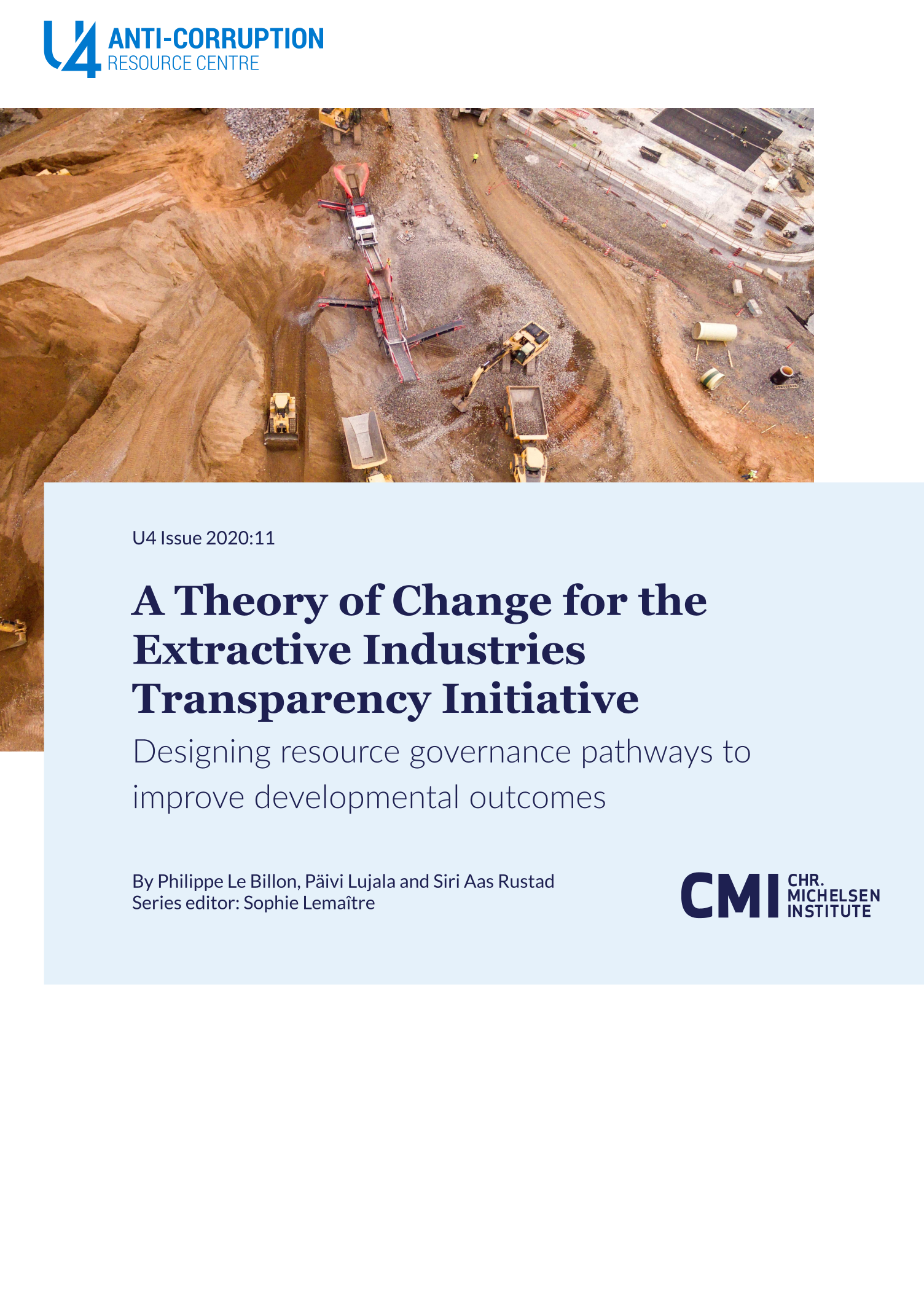Main points
- Many researchers, practitioners, donors, and decision makers have evaluated the EITI’s impact on resource governance and development since its implementation, and whether its notion that information disclosure prompts change is valid. An explicit Theory of Change could help understand how the EITI can achieve improved extractive sector governance and development in participating countries.
- An EITI Theory of Change should build on the EITI’s success in providing credible information, creating constructive dialogues, and contributing to institutional reforms.
- The EITI would gain from a Theory of Change that strengthens and targets better information disclosure, and builds capacity among the public and civil society to analyse and act upon the disclosed information. It would also benefit from greater outreach within government, through representation at the multi-stakeholder group, and clearer communication channels and products.
- Designing a Theory of Change that integrates information and issues at the subnational level would enable governments to show in more detail where revenues come from, what they are used for and where, and engage citizens on issues that are ‘closer’ to them.
- An EITI Theory of Change must address pressing issues such as the social and environmental costs of extraction, small- and medium-scale mining, and the expenditure side of revenue management.
- The EITI needs to develop models and guidelines to design and implement effective and dynamic country-specific Theories of Change. The needs, challenges, and objectives that the national EITIs seek to address vary between countries and over time.
- Of the three simplified and stylised Theory of Change models presented in this study, the Public Debate model was deemed as the most important, the Technical Reforms model as the most efficient, and the Name-and-Shame model as often initially relevant.
- Although the models are not mutually exclusive and can be complementary, they are useful in structuring reflections and discussions about how the EITI and information disclosure can lead to better extractive sector management and improved developmental outcomes for the society.



